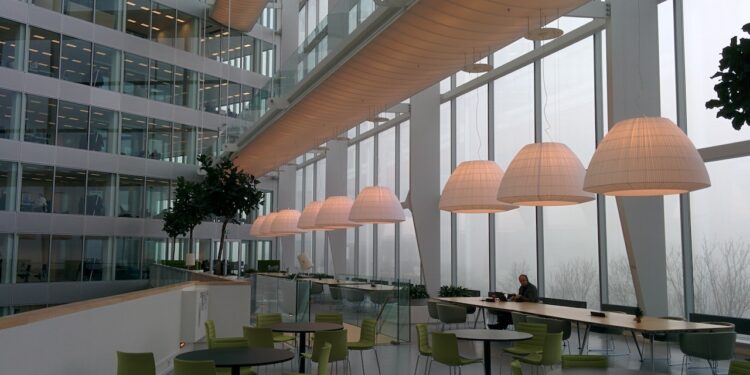There are several crucial leasing considerations that firms should consider while looking for commercial office space to rent. First, accessibility and closeness to amenities are important factors in enticing customers and employees.
Therefore, location is important. Second, the office’s size and design must accommodate the business’s needs and potential expansion.
The lease terms and conditions, including duration, rent escalation provisions, and renewal possibilities, should also be carefully examined to ensure they complement the company’s long-term ambitions.
Last but not least, it is essential to comprehend the maintenance obligations, parking options, and other expenses like utilities or shared area upkeep fees for budgeting considerations.
Businesses can secure a commercial office by weighing these important variables and making informed judgements.
Parties to the Lease
The parties to the lease agreement are quite important when leasing commercial office space for rent. The landlord and the tenant are often the two key parties.
The person or company looking to rent office space is known as the tenant, while the owner or property manager renting it out is known as the landlord.
The lease agreement clearly states the obligations of both parties, including those related to rent payment, upkeep duties, and lease duration.
A seamless and advantageous leasing experience depends on the parties’ ability to communicate and understand one another.
Premises Clause
The Premises Clause is important when looking for a cheap office rental space. It speaks of the particular location or asset covered by the lease.
The physical limitations and requirements of the property are described in this section, ensuring that both the landlord and the tenant have a clear understanding of the area being rented.
The address, square space, layout, and additional features or amenities are frequently included.
The Premises Clause is crucial for defining the lease terms and enabling businesses to determine whether the space satisfies their needs and is conducive to their operations.
Use Clause
A usage clause specifying the permitted uses and operations that may be carried out on the property is an important part of a leasing agreement for office space.
This provision identifies the particular uses for which the space is intended and ensures that the tenant complies with the terms.
It might contain information on the type of business, its operating hours, and activity limits. The use clause guards against any abuse or violation of the rented area for the landlord and the tenant.
The usage clause provides an amicable and mutually advantageous lease arrangement by precisely defining the permitted uses.
Rent Payment
Leasing a rental place requires paying rent, which is an important step. It acts as a contract between the landlord and the tenant, guaranteeing timely and regular payment for using the property.
Tenants must pay rent monthly and know the agreed-upon amount, due date, and preferred payment method.
Tenants must follow the prescribed payment method to maintain a positive landlord-tenant relationship through conventional means like cash or cheque or more contemporary choices like internet transfers or mobile payment apps.
Punctual rent payment helps maintain the rental agreement’s overall efficiency while fostering confidence.
Term Clause
A term provision specifying the lease length for a particular office space is a crucial part of an office rental agreement.
This provision sets forth the term for which the Tenant shall have the Premises and the respective duties and rights of the Landlord and the Tenant during such term.
The start date and end date of the lease are often included in the termination clause.
These dates range from a few months to several years, depending on the agreement reached between the parties.
This clause makes the duration of the tenancy clear and certain, allowing both parties to make plans and be aware of their responsibilities.
Letter of Credit Requirement
A Letter of Credit (LC) must frequently be submitted for daily office rental. A letter of credit is a financial instrument banks use to ensure tenants pay their rent and other debts on time.
It acts as a security for the landlord, ensuring that the tenant will keep their end of the bargain regarding payments throughout the lease.
The credit limit offered and the terms under which the money may be drawn are normally specified in the LC.
An LC is frequently requested by landlords to reduce the possibility of non-payment and to give comfort that the tenant has the resources to fulfil their commitments.
Both parties can develop trust and protect their interests by requesting a Letter of Credit.
Final Words
To find the ideal commercial office space to rent, you can hire experts like Spark Studios because it’s crucial for success in the fast-paced corporate environment.
This in-demand solution has many advantages, including adaptability, economy, and a professional setting.
Businesses can select rooms that fit their unique needs and requirements from various possibilities.
Commercial office spaces offer the ideal setting for development and productivity, whether a startup is seeking a collaborative open-plan workspace or an established business is seeking a renowned address.
Businesses can carefully deploy their resources by renting rather than buying, concentrating on their core company operations while delegating management and maintenance duties to the property owner.
In conclusion, selecting a commercial office space for rent presents a practical and effective answer for organisations of all sizes.







